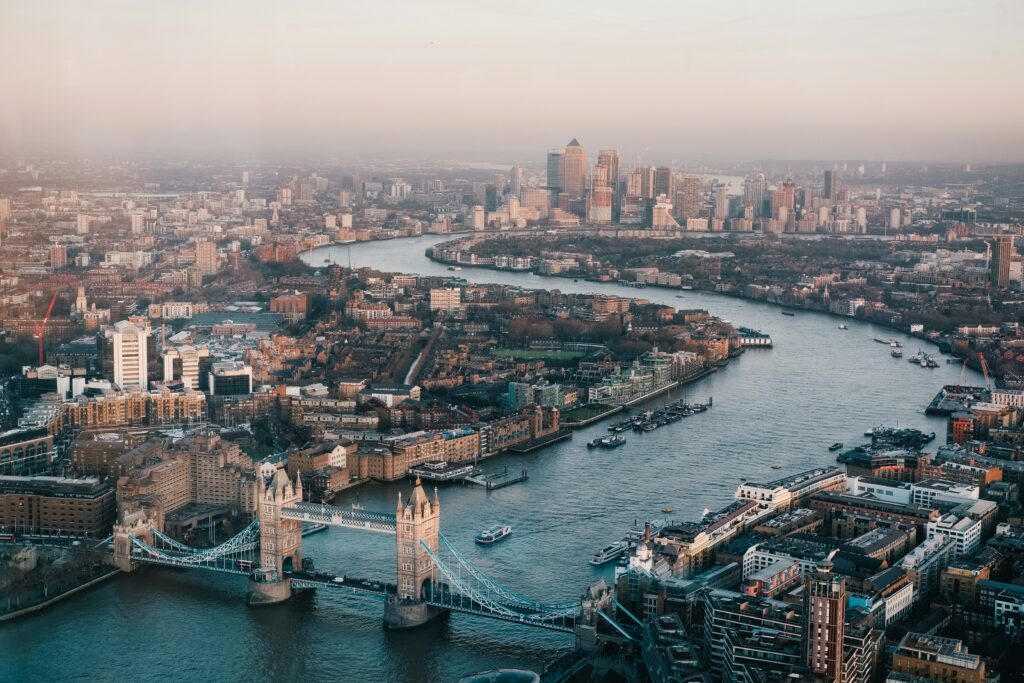May the 25th, 2025 – The Croatian House (Hrvatska kuća) in London aims to connect the many Croats and members of the diaspora in the UK.
As Sinisa Malus/Poslovni Dnevnik writes, Margareta Klinčić Tremac and Filip Tremac have been living in London for years. Along with Margareta, the co-president of the Association of Croatian British Professionals (ACBP) is Krešimir Krajnović.
The association marked its first public appearance two years ago with a reception at the Croatian Embassy in London, where the Croatian Ambassador to the United Kingdom, Igor Pokaz, also addressed them with a speech.
The Croatian Supplementary School in London has once again become a place of meeting, play and interaction. What exactly goes on there?

“After four years of teaching exclusively remotely, the Croatian Supplementary School in London has returned to live teaching. That means we’re becoming a physical place where children, parents and the wider community can meet, socialise and learn the Croatian language and culture through play and interaction. The programme is organised by the Croatian Ministry of Science, Education and Youth, while the space and additional workshops are provided by the Association of Croatian British Professionals (ACBP).
The Croatian Supplementary School in London has been operating since back in 1994, but lost its space during the coronavirus pandemic and classes are held exclusively remotely. Our desire is for the school to come to life in a hybrid form from the next school year on. We want it to connect the UK and Croatia, and create conditions for the socialisation of children in and around London. We also want enable children throughout the UK and beyond to connect via video link. We believe that the school will be a catalyst for plenty of future projects and events aimed at preserving the Croatian language, culture and identity,” Margareta Klinčić Tremac revealed.
Margareta is one of the founders and co-presidents of the Association of Croatian British Professionals (ACBP), and she explained precisely what ACBP activities entail.
“I’m proud that today, the ACBP is a crucial platform for connecting the Croatian diaspora in the UK. We’ve got 600 members and actively encourage professional networking, knowledge exchange and the development of entrepreneurial and cultural initiatives. In addition to working with individuals, we build partnerships with key organisations such as the Croatian and British Chambers of Commerce, the Croatian Employers Association, the Association of Croatian American Professionals (ACAP) and the Association of Croatian Students Abroad,” she explained.
The ACBP is currently actively working on a fundraising campaign to ensure the long-term sustainability of the school.
“We launched the campaign this spring with the aim of securing the necessary funds for the next school year and the long-term sustainability of the school by the end of the summer. We operate as a not-for-profit Community Interest Company (CIC), which means that all surplus income is reinvested in the community. The operating costs of a school in London for one school year reach a minimum of 80,000 pounds, the bulk of which is related to securing and equipping the premises and teachers’ salaries. Long-term sustainability depends largely on our ability to secure multiple sources of funding, so we’re calling on all parents and community members to get involved – whether that be through financial support, volunteering or collaboration – to build a strong and long-term sustainable school for future generations.
support from the Croatian Ministry of Foreign Affairs

“The Ministry of Foreign and European Affairs as well as the Ministry of Science, Education and Youth provide us with strong support. Embassy representatives often participate in our activities. We’ve also applied for tenders from some other institutions, such as the British Embassy in Zagreb and the Central State Office for Croats Abroad, in order to secure institutional support for our projects,” revealed Margareta.
15,000-20,000 croats live in the uk

“Looking at things in the long term, we’ve got three very ambitious goals; we want to increase the number of members, secure financial resources for the association’s activities in order to expand the range of activities and ensure long-term sustainability. Finally, we want to secure our own space. Regarding the number of members, our goal is to reach at least 10 percent of the Croatian community in the UK within the first five years and we believe that we’re on the right track to achieve that.
After the first two years of operation, we already have over 600 active members. Secondly, a big point here is the Croatian Supplementary School and its long-term sustainability. 45 schoolchildren are currently attending the distance learning school, and another 25 are included in the pilot project. Based on a survey among our members, we estimate that there are at least 80 more families who would like to join the programme, almost all of them in live classes. Ultimately, our big goal is to establish a Croatian House in London as a centre for Croatian community, language and culture,” said Margareta.
a future croatian house in london

Establishing a Croatian House in London, as a centre for the Croatian community, as well as for Croatian language and culture, is a complex undertaking. Margareta revealed how the preparations for this venture are going.
“We’re working on a model for a sustainable, multi-functional centre that would include classrooms for a supplementary school, a cultural and social space, a co-working zone, an event hall and a Croatian food corner. The initial phase requires around 100,000 euros. This would cover the rental costs for the first year, then the costs of adaptation, equipment, programmes and promotion. Long-term sustainability envisages income models such as symbolic membership fees, event space rental, income from cafes/restaurants, donations and applications for EU and UK funds.
Something like this isn’t something massive. Other national minorities in London have similar centres, for example the Serbian or Polish community. We’ve got big and ambitious plans, and the next natural step in the realisation of this project would be to open a Croatian restaurant, or rather a gastronomic centre as part of the Croatian House in London. We cannot do this alone and we would be happy to cooperate with professionals from the hospitality sector,” added Margareta.
the croatian house in london as a permanent home for uk croats

The overall goal of the Croatian House in London is to become a central gathering place for the Croatian community in London – through education, culture, gastronomy and entrepreneurship. The Croatian House in London would be a permanent home for the Croatian community and a meeting point for Croatian culture, language and business initiatives in the UK. We want to create a space that will serve as a support for future generations in nurturing the Croatian identity and strengthening ties between the two countries. The ultimate goal is to create a self-sustaining platform,” revealed Margareta.
The Croatian business community in London and the perception of Croatia as an investment destination in the UK

“The Croatian business community in the UK is very active but quite dispersed. Before the establishment of the ACBP, there was a lack of infrastructure for coordinating interests and connecting entities on the UK-Croatia route. The ACBP has filled this gap and we continue to build bridges between communities. In doing so, we work with a wide range of partners and sister organisations. Some of them are the Association of Croatian American Professionals (ACAP), the British Croatian Society (BCS), the British Croatian Chamber of Commerce (BCCC), the British Business Chamber Croatia (BBCC), the Croatian Chamber of Economy, the Croatian Employers’ Association, Med&X, the Croatian Swiss Economic Club (CSEC), ZajednoSwiss, the Penkala Association, the Association of Croatian Students Abroad (UHSI) and many others. As for the perception of Croatia as an investment destination, it’s moderately positive in the UK.
The British business community sees Croatia as a stable EU country with special potential in tourism, IT and specialised niches. However, for stronger interest, additional branding of Croatia, the reduction of administrative barriers and stronger connections are needed. We see the formation of Croatian House in London as a strategic step towards that goal,” concluded Klinčić Tremac.











